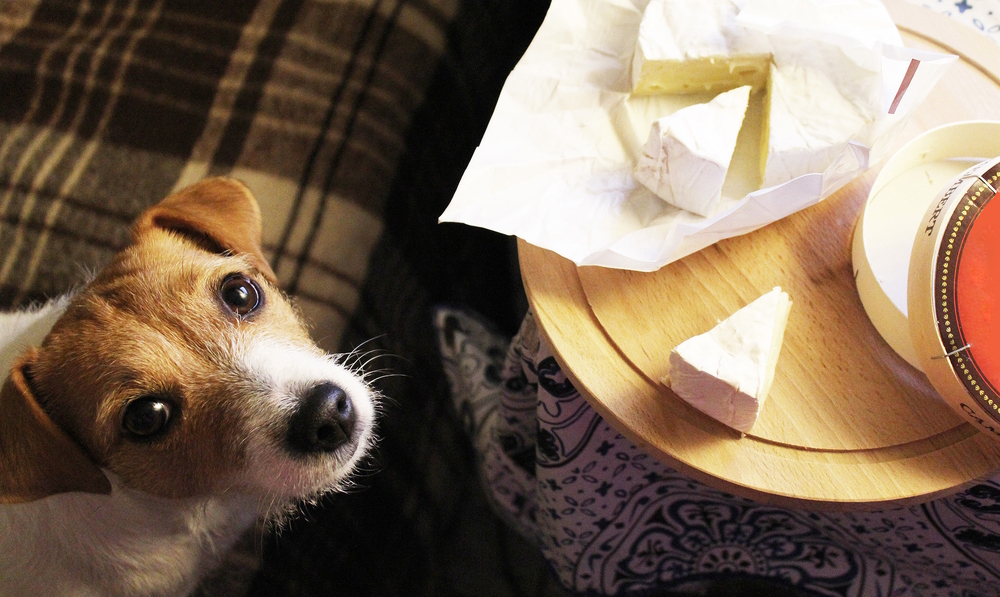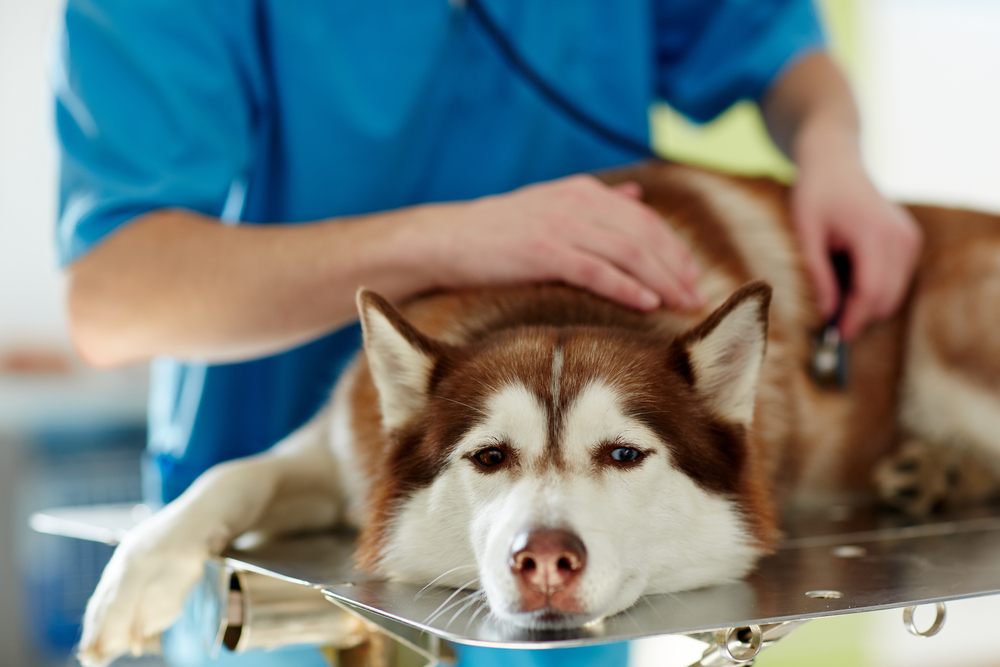It’s common knowledge that most dogs go crazy for cheese. In fact, cheese is often used as a high-value training treat because dogs love it so much. While it’s not 100% certain, it may be due to its pungent smell, savory flavor, or soft texture. We’ll go over a few possible reasons why your dog might love cheese and how to feed cheese to your dog safely.

The 4 Reasons Why Your Dog Loves Cheese
Dogs have different food preferences, so it’s perfectly okay if your dog doesn’t enjoy eating cheese. However, many dogs that have eaten cheese usually really love it. Here are some possible reasons why your dog may be obsessed with cheese.
1. Smell
Dogs are known to like strong, stinky smells, so some types of cheese are often right up their alley. It’s not completely certain why dogs like smelly odors, but it’s possible that pungent smells pique their curiosity due to containing layered scents.
It’s likely you don’t let your dog sniff or roll around in stinky things. So, your dog is probably thrilled that they get to eat something smelly when they normally don’t get to interact with these types of things.

2. Savory Flavor
Dogs can enjoy eating various foods with different flavors, but they tend to have an affinity for savory foods over sweet ones. One reason they likely prefer savory flavors is because they evolved to eat meat. Therefore, cheese may taste more palatable to dogs than other types of foods like fruit and vegetables.
3. A Source of Fat
Despite getting a bad rap, fat is an essential nutrient for dogs and they often like the taste. Dogs use fat for energy, and fat helps absorb certain fat-soluble vitamins. Fatty acids also promote skin and coat health and may decrease inflammation.
Along with containing a substantial amount of fat, some cheeses can be a good source of other essential vitamins and minerals. Certain cheeses can contain substantial amounts of calcium, vitamin A, vitamin B12, zinc, phosphorus, and riboflavin. So, while your dog likely won’t appreciate the nutritional value, they may like the taste these nutrients provide.
4. Texture
Many dogs enjoy chewing on different types of textures. Some dogs will love the soft and chewy texture of slices of cheese, while others can spend hours gnawing on a hard yak cheese stick. Chewing on different textures can be a stimulating and enriching activity for dogs and help keep boredom at bay.


Is Cheese Safe for Dogs to Eat?
Most types of cheese are safe for most dogs to eat as long as it’s fed in moderation. Cheese is high in fat and calories, so dogs can gain weight relatively quickly if they eat too much of it. Therefore, cheese is best reserved as a special treat, and it is often an excellent high-value treat for dog training.
Since dogs can be lactose-intolerant, make sure only to give your dog a small piece if it’s their first time trying cheese. If your dog gets an upset stomach from eating cheese, refrain from feeding it to them again.
It’s also important to check with your veterinarian if your dog has specific health issues or is taking medication or supplements. Sometimes, dogs require sticking to a strict diet, and cheese may cause complications to their health and recovery.
Avoid Blue Cheeses
Beware of blue cheeses, as they can cause dogs to get extremely sick. Blue cheeses, like Roquefort, Stilton, and Gorgonzola, contain roquefortine C, and many dogs are sensitive to it. Depending on how much blue cheese a dog consumes, they can experience vomiting, diarrhea, lethargy, twitching, excessive panting, or seizures. If your dog eats any type of blue cheese or moldy cheese, it’s best to contact your veterinarian or a pet poison hotline right away to ensure your dog gets the help they need as quickly as possible.


Conclusion
Dogs may love cheese because of its strong, pungent smell and savory flavor. Regardless of the reasons why your dog loves cheese, make sure to only feed it to them in moderation. Too much cheese can cause an upset stomach or excessive weight gain and obesity in the long run. Reserving cheese as a special snack will ensure your dog can enjoy eating it in healthy portions.
Featured Image Credit: Igor Normann, Shutterstock
